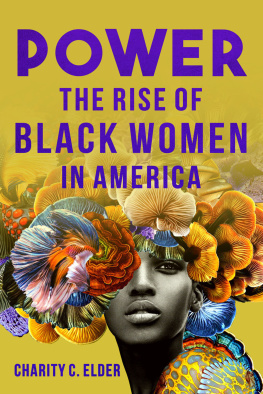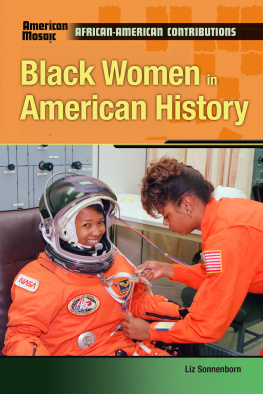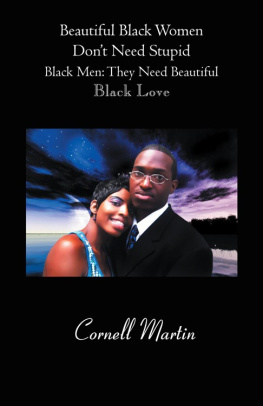Prologue
E VERY SMALL TOWN has its honored citizens. You can find their names on plaques in the library and in the history of the town, bound in leather and getting dusty on the shelves. Parks are created in tribute to them, and streets are named after them, and the people of the town remember them, even if they dont always know why.
Deerfield, Massachusetts, remembers Lucy Terry Prince. She came to the town when she was only about five years old. Ebenezer Wells bought her off a slave ship to help him with his housework. She was baptized in the First Church of Deerfield on June 15, 1735. The town history remembers that, when she was grown up, she was noted for her wit and shrewdness and the boys of the town flocked to her house to hear her talk, so we can assume that she learned her new language quickly and was a sociable child. When she was fourteen, she was admitted to the fellowship of the church. When she was sixteen, nearby Indians attacked that part of Deerfield known as The Bars, and teenaged Lucy wrote a poem commemorating the event. We dont know whether it was her first effort, but it was the first and only poem of hers that was preserved.
B ARS F IGHT
August, twas the twenty-fifth,
Seventeen hundred forty-six,
The Indians did in ambush lay
Some very valient men to slay,
Samuel Allen like a hero fout,
And though he was so brave and bold,
His face no more shall we behold.
Eleazer Hawks was killed outright,
Before he had time to fight
Before he did the Indians see,
Was shot and killed immediately.
Oliver Amsden he was slain,
Which caused his friends much grief and pain
Simeon Amsden they found dead
Not many rods distant from his head.
Adonijah Gillett, we do hear,
Did lose his life which was so dear.
John Sadler fled across the water,
And thus escaped the dreadful.
Eunice Allen see the Indians coming,
And hopes to save herself by running;
And had not her petticoats stopped her,
The awful creatures had not catched her,
Nor tommy hawked her on the head.
Young Samuel Allen, Oh, lack-a-day!
Was taken and carried to Canada.
The adolescent Lucy Terrys feelings for her neighbors were clearly not tainted with a sense of racial inferiority or even self-consciousness. The tone of the poem makes it obvious that young Lucy Terry considered the white people she described to be friends and neighbors. In fact, probably the most appealing quality of the poem is the evident affection the poet feels for her subjects. And the poem itself was treasured in Deerfield. Handed down from generation to generation, it was published in 1855 in History of Western Massachusetts by Josiah Gilbert Holland.
In 1756, when she was about twenty-six, Lucy Terry married Abijah Prince. At this time, she was free, although it is not certain by what means. Wells may have freed her, or Prince may have bought her freedom. He was an established man, having served four years in the militia during the French and Indian Wars and, perhaps because of his service, having acquired his freedom and three parcels of land in Northfield, Massachusetts. He was older than his new wife by about twenty-five years. Sometime during the 1760s, he and Lucy acquired a farm near Guilford, Vermont, and moved their family there. Later, Abijah Prince was one of the founders of the town of Sunderland, Vermont. The Princes seemed to fit in well at Guilford, a town of culture and learning, with a library and musical societies. However, in 1785, the Noyse familywhite neighbors of the Princesthreatened them with violence. Lucy and Abijah appealed to Governor Thomas Chittenden for protection, and he ordered the selectmen of the town to see to it that the Princes were bothered no more.
The Princes had seven children. Lucy applied for the admission of one of her sons, Abijah, Jr., to Williams College. George Sheldon, historian of Deerfield, writes, He was rejected on account of his race. The indignant mother pressed her claim before the trustees in an earnest and eloquent speech of three hours, quoting an abundance of law and Gospel, chapter and verse, in support of it, but all in vain. The name of no son of Lucy Prince graces the catalogue of Williams College. In a later case, Lucy Prince won the day. A Colonel Eli Bronson tried to steal a lot belonging to the Princes in Sunderland, near the home of Ethan Allen. The case ended up in the Supreme Court of the United States. According to Sheldon, our Lucy argued the case at length before the court. Justice Chase said that Lucy made a better argument than he had heard from any lawyer at the Vermont bar.
Lucy Terry Prince died in 1821. Her obituary in the Franklin Herald stated, In this remarkable woman there was an assemblage of qualities rarely to be found among her sex. Her volubility was exceeded by none, and in general the fluency of her speech captivated all around her, and was not destitute of instruction and edification. She was much respected among her acquaintance, who treated her with a degree of deference. The obituary writer, please note, considered Princes wisdom and eloquence extraordinary for a woman, not for an African American.
Why have we told the story of Lucy Terry Prince at such length and in such detail? Because the meaning is in the details, in the respect she was given by her neighbors, in the affection she held for them, in her expectation that her son would be admitted to Williams College. Lucy Terry Prince was a citizen. Like many white citizens of the colonies, she had come to these shores as an unfree laborer, but she had passed into freedom and earned a place of prominence in her community. There is meaning also, though of a different kind, in the threat of violence from white neighbors in 1785 and the fact that Williams College rejected Abijah, Jr.








